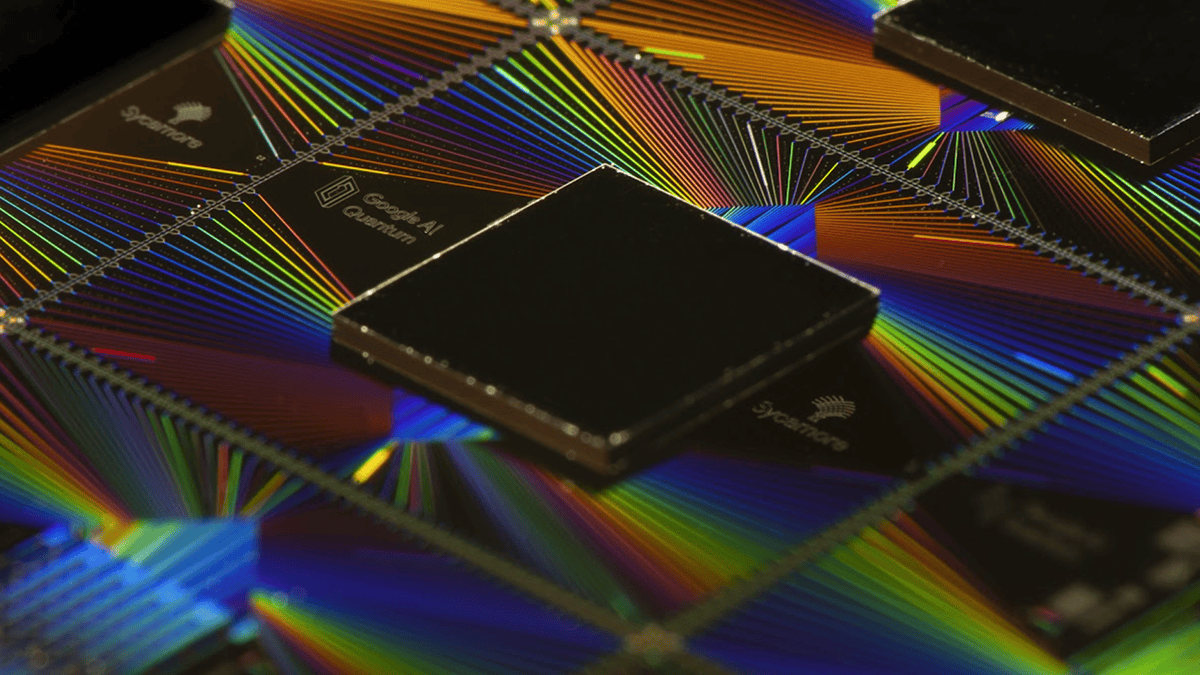Science
Quantum Computing Industry Booms as New Technologies Emerge

The quantum computing marketplace is experiencing significant growth, with several companies now producing commercially viable machines. A recent meeting at the Royal Society in London in February 2023, which served as the UK launch for the International Year of Quantum Science and Technology (IYQ) 2025, highlighted the advancements made in this field. Experts gathered to discuss the current state and future prospects of quantum computing, indicating that the industry is moving towards maturity.
Renowned physicist David Deutsch, often regarded as the father of quantum computing theory, expressed skepticism about the technology’s utility just over a decade ago. However, the developments showcased at the Royal Society may have surprised him, as quantum computing has now evolved to tackle some practical problems through the use of quantum mechanics principles like superposition and entanglement. While these technologies have yet to outpace classical computing in practical applications, the consensus is that the prospect of achieving “practical quantum advantage” is drawing near.
Current Landscape of Quantum Technologies
The quantum computing market is now thriving, with devices being manufactured by major tech companies such as IBM, Google, D-Wave, and newer entrants like Nord Quantique and IQM. The rapid expansion of quantum science and technology has led to a surge in government initiatives, with more than 20 countries establishing national strategies and funding allocations for quantum research. According to the State of Quantum 2024 report, global investments in quantum technology have surpassed $55.7 billion, and the market is anticipated to reach $106 billion by 2040.
Organizations like QURECA are actively summarizing government funding efforts and commitments to quantum technology, emphasizing the organic development of a supply chain that includes hardware manufacturers and software developers. Notable companies in this ecosystem include Quantum Machines, Riverlane, and QC Ware, which cater to various sectors such as finance, pharmaceuticals, and engineering.
Despite this progress, the immediate future of quantum computing remains uncertain. Comments from Nvidia‘s CEO in early 2025 suggested that truly useful quantum computers may still be two decades away, causing fluctuations in the share prices of prominent quantum firms. Physicist Winfried Hensinger from the University of Sussex acknowledges the remarkable advancements being made but stresses the need for realistic expectations regarding the timeline for commercially viable quantum computers.
Challenges and Future Directions
The current era of quantum computing is often referred to as the “noisy intermediate-scale quantum” (NISQ) era. The qubits in use today are prone to errors, limiting their ability to perform computations that outstrip classical high-performance computing capabilities. Researchers emphasize that while significant breakthroughs are underway, the fundamental science behind quantum computing is still evolving.
Companies like IBM are setting ambitious goals, aiming for a fault-tolerant system capable of executing 100 million gates on 200 logical qubits by 2029. This milestone is viewed as a critical step toward achieving quantum advantage in solving complex scientific problems.
The landscape of quantum computing platforms is diverse, with various physical systems being explored for qubit implementation. Top performers currently include superconducting qubits, which are used by companies like Google and IBM. However, neutral atoms and trapped ions are also gaining traction as potential contenders. Notably, a Harvard startup called QuEra is pushing the boundaries of neutral atom technology, while PsiQuantum and Xanadu are developing photonic quantum computing.
As the quantum computing field matures, researchers are increasingly focused on finding meaningful metrics to compare different platforms. The National Quantum Computing Centre (NQCC) evaluates device performance based on a factor known as “quantum operation” (QuOp), which measures the number of coherent operations that can be completed before qubits lose their coherence. This benchmark is crucial as the industry aims to progress beyond the NISQ era.
While the quest for robust quantum computers continues, the path forward involves addressing challenges related to error correction and scalability. The future of quantum computing remains bright, but achieving practical applications will require continued investment and development in this dynamic field.
This article forms part of Physics World’s contribution to the International Year of Quantum Science and Technology (IYQ), an initiative designed to enhance global awareness of quantum physics and its potential applications. Further coverage of quantum developments will follow throughout the year.
-

 Health3 months ago
Health3 months agoNeurologist Warns Excessive Use of Supplements Can Harm Brain
-

 Health3 months ago
Health3 months agoFiona Phillips’ Husband Shares Heartfelt Update on Her Alzheimer’s Journey
-

 Science2 months ago
Science2 months agoBrian Cox Addresses Claims of Alien Probe in 3I/ATLAS Discovery
-

 Science2 months ago
Science2 months agoNASA Investigates Unusual Comet 3I/ATLAS; New Findings Emerge
-

 Science1 month ago
Science1 month agoScientists Examine 3I/ATLAS: Alien Artifact or Cosmic Oddity?
-

 Entertainment5 months ago
Entertainment5 months agoKerry Katona Discusses Future Baby Plans and Brian McFadden’s Wedding
-

 Science1 month ago
Science1 month agoNASA Investigates Speedy Object 3I/ATLAS, Sparking Speculation
-

 Entertainment4 months ago
Entertainment4 months agoEmmerdale Faces Tension as Dylan and April’s Lives Hang in the Balance
-

 World3 months ago
World3 months agoCole Palmer’s Cryptic Message to Kobbie Mainoo Following Loan Talks
-

 Science1 month ago
Science1 month agoNASA Scientists Explore Origins of 3I/ATLAS, a Fast-Moving Visitor
-

 Entertainment2 months ago
Entertainment2 months agoLewis Cope Addresses Accusations of Dance Training Advantage
-

 Entertainment3 months ago
Entertainment3 months agoMajor Cast Changes at Coronation Street: Exits and Returns in 2025









